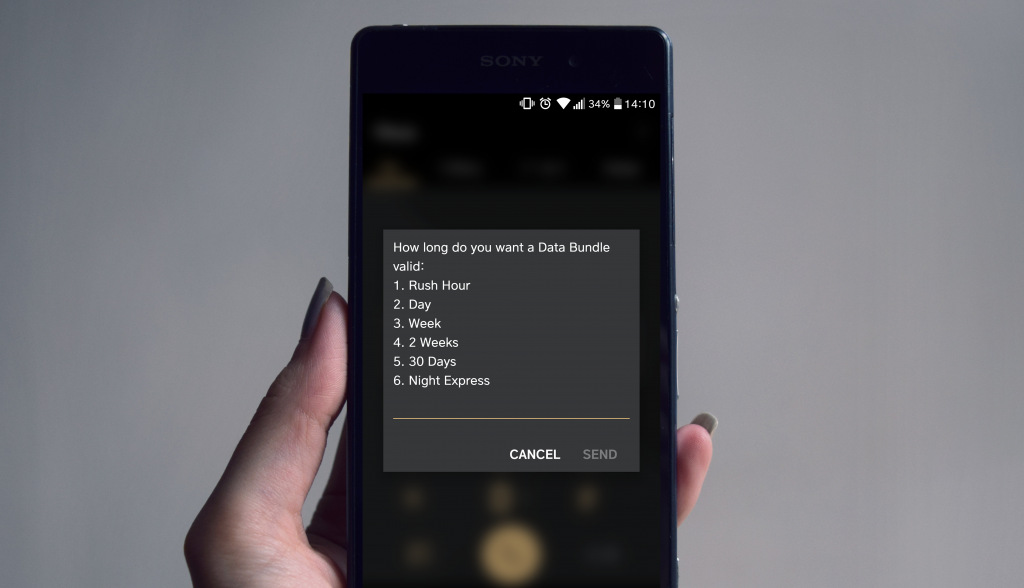From Friday this week, 1 March 2019, mobile operators in South Africa need to comply with the Independent Communication Authority of South Africa’s (Icasa’s) ruling from April 2018 which dictates (relatively) clear-cut rules about mobile data for South African consumers. These regulations are aimed reducing the cost to communicate, by limiting bill shock, ensuring consumers are notified before they start getting charge out-of-bundle rates, and allowing customers to transfer data to other users of the same network.
Data prices have been a controversial topic in South Africa in recent years. The Icasa ruling comes after an extensive consultation process following concerns over the high cost of mobile data in SA, and consumer’s understandable frustration over expiry policies for data bundles. You’d think that when you pay for something, it’s yours to use as you will, especially when it’s intangible. That’s not how data’s traditionally worked, though. You buy a bundle and 30 days later it expires, whether you’ve used it or not.
Thankfully, that’s set to change now, but not all operators have interpreted Icasa’s requirements the same way. Here’s what you need to know about what Icasa’s demanding, and how local operators are complying.
The new regulations state that operators must:
- Offer data rollover to customers, though Icasa has left it to the companies to determine how long that period of rollover should be;
- Send usage depletion notifications to consumers once they have used 50%, 80% and 100% of their bundles;
- Ensure that out-of-bundle data is explicitly opt-in only — consumers must not automatically be defaulted to out-of-bundle rates when their bundles are depleted; and
- Provide an option to offer unused data to other users on the same network.
What to expect from local operators
Vodacom
Vodacom will now have a default setting that won’t charge out-of-bundle rates when a data bundle is depleted. This means airtime won’t be used to pay for data usage once a bundle is deleted. Users will be able to opt out and use out-of-bundle if they so wish… but we’d recommend they don’t. Instead, top up your data and enjoy the preferential rates bundles off. But don’t buy too much, because Vodacom’s going to make you pay for rolling over unused data.
Legally they have to roll over unused data but @Vodacom is going to charge their customers as per this table? How is this allowed? #confused #data pic.twitter.com/bS57BurpvT
— Lynette Anthony Hundermark (@LynetteAnthony) February 25, 2019
Yip, you read that right. Vodacom’s data rollover system will cost you money. We’re pretty sure this wasn’t what Icasa had in mind. But that’s what the regulator gets for being vague. If you want to roll over data from one month to the next, or one hour to the next for short term bundles, you’ll have to pay a fee. The fee will change according to the amount you’d like to roll over.
The details of how long each different data bundle costs to rollover and how long each is valid for thereafter are painfully opaque (see the tweet above), and Vodacom’s been coming in for a deserved amount of flak as a result. If Vodacom’s trying to look like it hates its customers and will do everything it can to milk the maximum cash from them while trying its hardest to skirt Icasa’s new requirements, it’s doing a great job.
MTN

Sure, contract customers are able to roll over their monthly data automatically for up to two months, which is fine (though we’d like to see the time limit removed. But prepaid customers have never been able to roll over data bundles. MTN says it will allow prepaid users to roll over data as long as they buy another bundle before their existing one expires. Which kind of defeats the purpose of roll-over data.
Cell C
For prepaid customers, recurring data bundles will automatically roll over to the next month at no additional cost. After one month, 500MB can be rolled over at not cost for an additional day. If you opt to roll over more than that, Cell C will charge you a fee, which it hasn’t confirmed yet. Promotional or free data (like buy 10MB get 10MB free, or similar) and service-specific bundles (like WhatsApp or media bundles) are all excluded from being rolled over.
Telkom
Telkom is of the opinion that it already meets all of Icasa’s stipulations… and we’re inclined to agree.
In other words, if you want the least smoke and mirrors and the most charitable reading of Icasa’s new rules, you best port your number to Telkom. Yeah, we’re as surprised at you are.
Our take on things
Icasa’s ruling is clearly intended to help people who struggle with high data prices, particularly the poor, and to make the way data works easy to understand. Nonetheless, to varying degrees, most of the mobile networks are doing their best to find and exploit loopholes in the new regulations. Sadly, as much as we find their behaviour vile, we also understand that’s how these things work. Shareholders want maximum returns, and realising those returns means doing everything you can to maintain profitability.
Vodacom’s the worst offender, and if it doesn’t revise its approach before the regulations kick in on Friday we hope its next financial results include a massive loss of subscribers. We never thought we’d find ourselves recommending Telkom, but here we are. If you want the best mobile data policies you should port your number to Telkom.
We’ll have more news about the new regulations on Friday when they come into effect, by which time hopefully Vodacom will have adjusted its stance to something less downright villainous.
Sources: Business Insider and TechCentral
